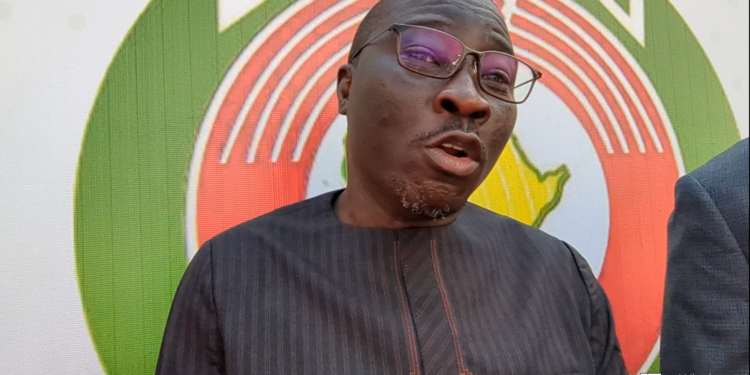By Kemo Cham
The Director General of the Inter-Governmental Action Group against Money Laundering in West Africa (GIABA), Edwin Harris Jnr, has proposed drastic measures to combat the drug epidemic in the region.
Harris’ proposal include a declaration of a state of emergency on drug by ECOWAS member states. He told delegates at the ongoing GIABA 42nd Technical Commission meeting in Freetown that this will enable countries to respond adequately to the epidemic.
Harris also suggested for member states to adopt legislative measures that emphasizes on heavy punishment for drug traffickers, stead of their victims.
“I want to challenge the authorities of member states, our sister organizations – the West African Health Organization, the ECOWAS Commission – to declare an emergency on this epidemic before it reaches invincible proportion when it could impact regional security,” he said.
GIABA is the specialized agency of the Economic Community of West African States (ECOWAS), and it is charged with the responsibility of fighting money laundering, illicit financial flows and counter-terrorist financing within the region. The Technical Commission/Plenary and Ministerial Committee Meeting is a biannual event that brings together heads of Financial Intelligence agencies from the member countries of ECOWAS, experts in financial crimes, regional and international partners to discuss progress and share experiences concerning challenges faced in implementing effective Anti-Money Laundering and Counter-Terrorism Financing (AML/CFT) measures.
The Freetown meeting runs from November 17 to 23. On Thursday, November 21, it was formally opened by members of the Ministerial Council. In a statement to the delegate, Harris cited the drug crisis among the major threats to the region’s ability to counter terrorism and financial crimes.
He said his agency was concerned about this because it might lead to the recruitment of terrorists and potentially disrupt the region’s governance process, thereby giving the drug cartel a path to take over “our governance structure, leading to more insecurity and undermining our quest for shared prosperity in the region.”
Harris challenged West African leaders seek to distance themselves from the drug cartel by adopting tougher actions against the illicit trade.
The GIABA DG stressed that one of the most effective ways of preventing crimes is by depriving the perpetrators access to the proceeds from their activities.
“It is time that government separate itself from this illicit trade by prosecuting and confiscating the proceed of illicit drug trafficking and provide very hash punitive action to perpetrators while providing rehabilitation to victims as a means of combating” this drug epidemic,” he said.
The drug crisis in West Africa has been on for many years, but anti-drug campaigners say it became a major concern within the last five years.
The drug of choice among users have changed several times within this period. In the last two years, a synthetic substance called Kush has been at the center of the epidemic.
It is known to be affecting several West African countries, but the three Mano River Union neighbours Sierra Leone, Liberia and Guinea have been the most hit, according to reports.
The Sierra Leone government in April this year declared a state of emergency in response to rising number of deaths among its youths as a result of the epidemic, promising to ramp up its response efforts.
But some campaigners have criticised the government’s response as too slow, especially in terms of its response to the needs of the victims.
In Liberia, there appears to be less enthusiasm in tackling the epidemic.
Liberia has in the past blamed its neighbours for fueling its drug crisis.
According to Harris, the situation is a concern for his institution due to the potential it has of fueling terrorism.
“Trafficking and usage of illicit drugs was singled out in majority of the national assessment as offence, yet drug trafficking has reached a proportional process when the criminal continues to benefit from the proceed while the future of most of our member states are gradually eroded,” he told ManoReporters in an interview on the sidelines of the GIABA meeting ongoing at the New Brookfields Hotel in Freetown.






















